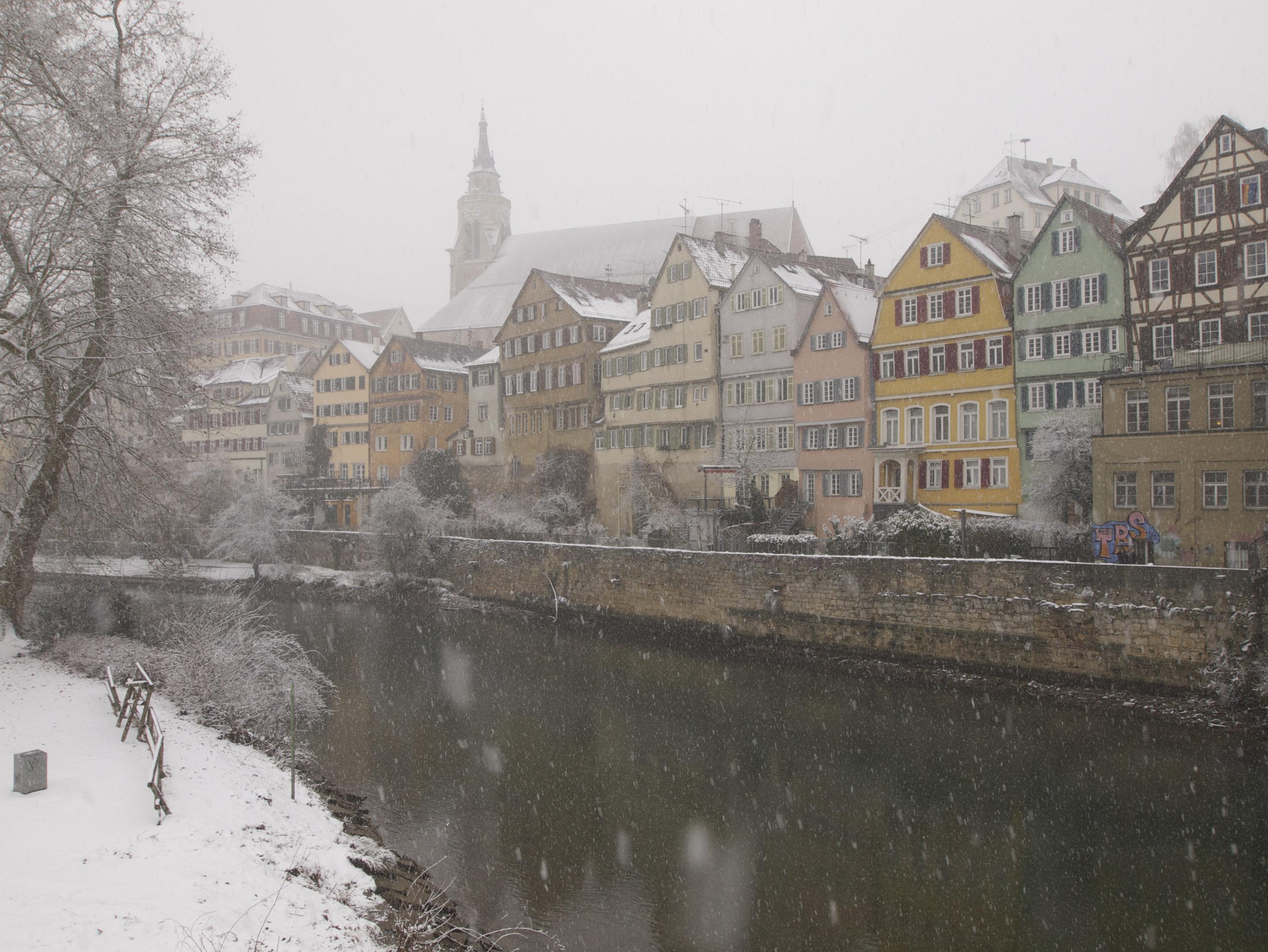Why choose Tübingen?
Let’s be frank: Tübingen is not a capital city – it is a university town, one of the oldest and most charming of its kind. Tübingen does not have a university, it is a university, as they say. Every step you take here is full of history. The University was founded in 1477, and Hegel and Schelling studied in Tübingen centuries ago. Yet at the same time, Tübingen is one of the youngest cities in Germany. It is at the centre of one of Europe’s most vibrant economic regions. It has its own public theatre, plus several private ones, a lively music scene, several museums, loads of cosy bars, and is surrounded by a beautiful countryside. Stuttgart with its many attractions is a short train ride away, while the immediate surroundings offer plenty of sights to be seen, from the famous Hohenzollern castle to the Roman ruins of Rottenburg, from the gothic monastery in Bebenhausen to the mountains of the Black Forest. The University, one of eleven universities in Germany that may officially call itself a “university of excellence”, marries historic buildings with state-of the-art facilities. Take the steps up to the Berghof Foundation, whose work in peace education is tied into our study programme – which is one of the oldest of its kind in Germany. Or meet on the Institute’s lawn to study in the sun or discuss your ideas with your fellow students and faculty – the Neckar Valley is one of the sunniest and warmest regions in Germany!
The University Town of Tübingen
In the following you will find helpful links in case you are thinking or already planning to move to Tübingen.
The University of Tübingen
For all those who decide to study at the University of Tübingen, we would first like to recommend the University's comprehensive information brochure Starting your Studies - A Guide. It contains all the important information about the university and starting your studies: from a profile of the university to important dates and documents for starting your studies as well as addresses and contacts of the most important administrative units, facilities and services, to information about studying abroad and about the city of Tübingen, for example public transport.
Moreover, on their website, the University of Tübingen offers news and information about current events at the university, living and studying in the city and help for new or already settled students: https://uni-tuebingen.de/en/
The university also offers information and services especially for international students coming to Tübingen: https://uni-tuebingen.de/en/90790
The Studierendenwerk Tübingen - Hohenheim
The Studierendenwerk Tübingen - Hohenheim helps students in all kinds of social issues. It owns different halls of residence and helps finding accommodations, runs the cafeterias in different university buildings and offers legal advice, psychotherapeutic counselling, help with insurances or studying with children and much more: https://en.my-stuwe.de/
The City of Tübingen
The website of the city of Tübingen gives an overview of the history, culture and possibilities of and in Tübingen: https://www.tuebingen.de/en/
The Citizens Office (Bürgerbüro) is responsible for all kinds of legal services regarding living in Tübigen (website only in German): https://www.tuebingen.de/1512.html
The History of Peace Research in Tübingen
The roots of MAPIR date back to the 1960s when a group of students and lecturers in one of Germany’s oldest Political Science departments founded the Working Group on Peace Research. This was institutionalised with the appointment of Volker Rittberger as the Chair in International Relations in 1972. In the following, the Working Group developed into one of the centres for Peace Research and International Relations in Europe. Its past members include Tanja Brühl, Peter Mayer, Frank Schimmelfennig, Daniela Schwarzer, Wolfgang Wagner, Bernhard Zangl and Michael Zürn, among many others. Milestones on this path were the founding of the Institute for Peace Education in 1976, now part of the Berghof Foundation, and the creation of the initial, German version of the Master in Peace Research and International Relations in 1996 under the leadership of Thomas Nielebock. With Andreas Hasenclever’s position as Professor of Peace and Conflict Studies having been made permanent, and the appointment of Thomas Diez as the successor to Volker Rittberger as well as Gabi Schlag following Thomas Nielebock, the study of peace, conflict and international politics has continued this rich tradition while becoming more diverse in its theoretical and methodological approach. Bridging Peace Research and International Relations has always been a core mission of the Working Group – bridging the many theoretical divides and encouraging pluralism and dialogue is one of our central aims today.




